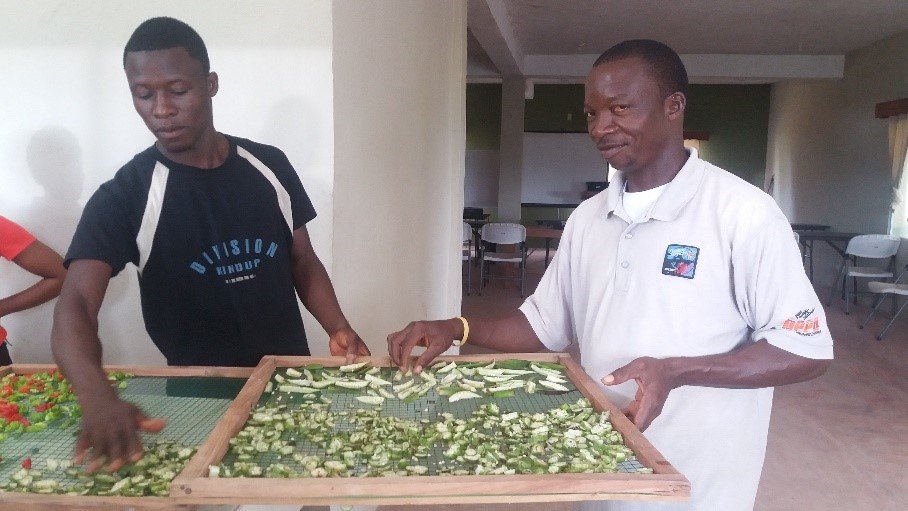College takes on kitchen initiative to tackle food loss in rural Liberia

In Liberia, the kitchen is rarely the first place to start when addressing food loss. However, the Liberia International Christian College (LICC) in Nimba county is using the unexpected spot to rewrite the story of impossibility.
The college requires undergraduate students in the General Agriculture program to take one very interesting course, AGR434 “Food Processing and Preservation”.
Present Dean of the Agriculture Department at LICC, Anna Glenn says her department is helping undergraduate students develop a solution-driven approach to food loss in Liberia.
“When we think about what we can do to help farmers in Liberia, we hardly think about the kitchen as being a place to start. We usually think about going out on the field and teaching soil science, disease control, propagation methods, and fertilizer usage; but that is not all. Agriculture is so much more than growing crops in a field- agriculture is about putting food on the table and feeding and nourishing people. It is about creativity, science, and business and problem solving,” she says.

Food spoilage is an overwhelming problem in sub-Saharan Africa, particularly in Liberia, where post-harvest infrastructure is lacking. The Food and Agriculture Organization (FAO) of the United Nations estimates that over 30 percent of harvests in the region are wasted, specifically from production to processing stages in the food supply chain. Reports have also revealed that the region suffers food shortages due to conflict and climate change.
Despite this, the college’s agriculture department is empowering students to address food loss in Liberia from a low-cost approach.
The college teaches students low-cost methods that are involved in processing and preserving meat, fruit, and vegetable. Some of the exercises include hygienic slaughter of farm animals, meat preservation using salt, fish solar drying. Students are also taught the basic in fruit and vegetable processing techniques.


The course is also creating a livelihood for some students.
Caleb Sonkarley, one student who has completed the Food Processing and Preservation course (AGRI434), is thriving among his peers.
So far, he has made orange jam, banana jam, and chocolate. He sells his products to friends and interested passersby. “The course has helped me,” says Caleb. “It is a means for me to get extra cash and it helps me keep some seasonal fruits all year round.”
Processing and preserving agricultural goods brings more benefits to the table. The process prevents insects and pest invasion, ensuring that farmers have more goods. Processing reduces the amount of agricultural produce that goes to waste.





